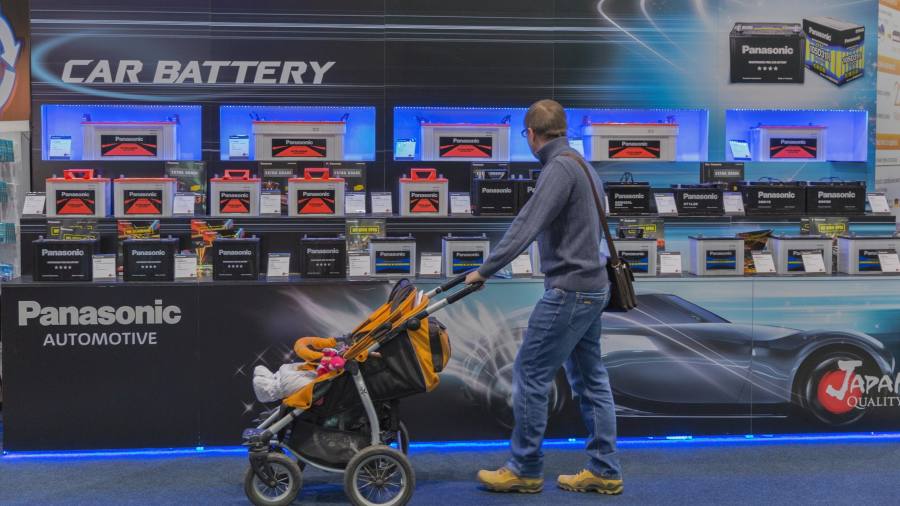[ad_1]
Panasonic will actively pursue growth in both the US and China as the Tesla supplier bolsters cash management to navigate the headwinds of the technology dispute between the world’s two largest economies.
In an interview with the Financial Times, chief executive Yuki Kusumi said the Japanese conglomerate would also conduct a review to streamline its vast business portfolio, which spans car batteries, air conditioners and microwave ovens, after two years of trying to make its operations more nimble and cost-efficient.
“It is true that the decoupling of the US and China is becoming a bigger challenge for us,” Kusumi said, adding that the company was studying ways to produce more car battery materials in the US that have previously been procured in China.
“But both the US and China are major markets that will steadily grow,” he said. “For us, both markets are important and we will bring each of these businesses to a state where they will be less vulnerable to political influence.”
The US is a particularly important market for Panasonic’s car battery business. The Japanese group runs a $5bn gigafactory in Nevada with electric vehicle maker Tesla.
Panasonic plans to invest $4bn to build a plant in Kansas, a decision Kusumi said was aided by the recent passage of US president Joe Biden’s Inflation Reduction Act, which includes $369bn of incentives to fund clean energy efforts.
The Kansas factory is likely to be partly funded by the ¥400bn ($3bn) Panasonic has set aside to invest in growth areas such as EV batteries, supply chain software and air conditioners over three years until March 2025. Another ¥200bn has been earmarked to develop hydrogen fuel cells and other new technologies.
But Panasonic has also made an aggressive wager on the expansion of its home appliances and refrigeration systems in China, where local management is given autonomy over its operations, in marked contrast with other regions.
Kusumi said the company might try to sell products made in China in Asian markets that do not fall under US export controls designed to obstruct Beijing’s access and ability to develop advanced semiconductors.
“To be frank, we cannot be optimistic about the market conditions next year,” Kusumi said, adding that the tougher outlook would increase the need for each of Panasonic’s divisions to be more vigilant about inventory management and accelerate conversion of revenues into cash flow.
In late October, Panasonic downgraded its annual operating profit forecast by 11 per cent to ¥320bn, blaming a slowdown in its automotive business and US supply chain specialist Blue Yonder, which it acquired for $7bn in 2021.
The geopolitical challenges have emerged as Kusumi is trying to take Panasonic to its next phase of growth. Since taking over as chief executive in April 2021, he has shelved a heavy restructuring of non-core assets and pivoted the group to focus on green transition efforts.
He has also shifted the Japanese group to a holding company structure to instil financial discipline and facilitate faster decision-making. According to Kusumi, these efforts have revealed which divisions are more competitive and which are lagging despite reforms under his tenure.
Some analysts have criticised Panasonic’s sprawling portfolio as lacking focus, warning that many of its businesses are vulnerable to macroeconomic cycles.
“We’re going to shift to a new form of portfolio management that involves more than just carve-outs,” Kusumi said, adding that he would review the capital structure of some business units.
[ad_2]
Image and article originally from www.ft.com. Read the original article here.

